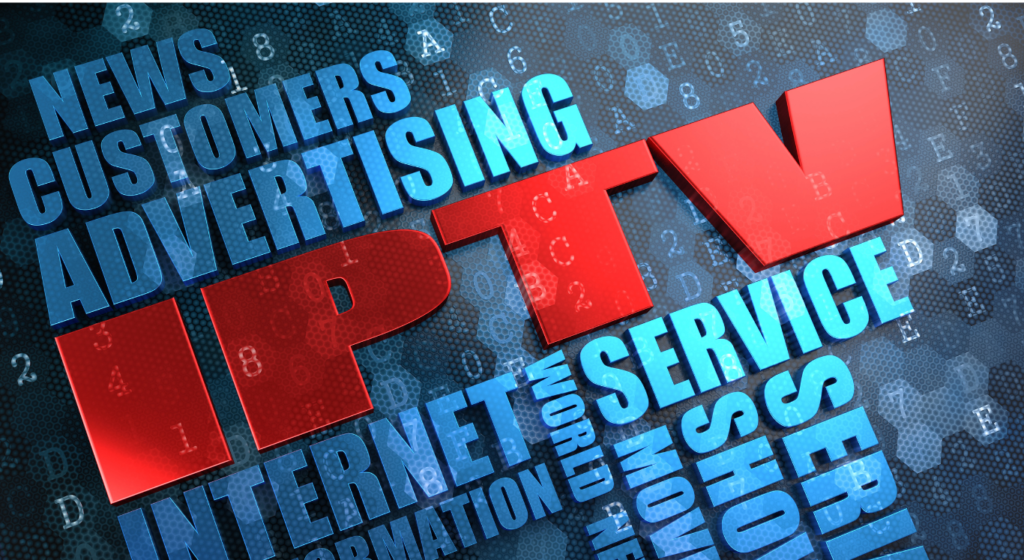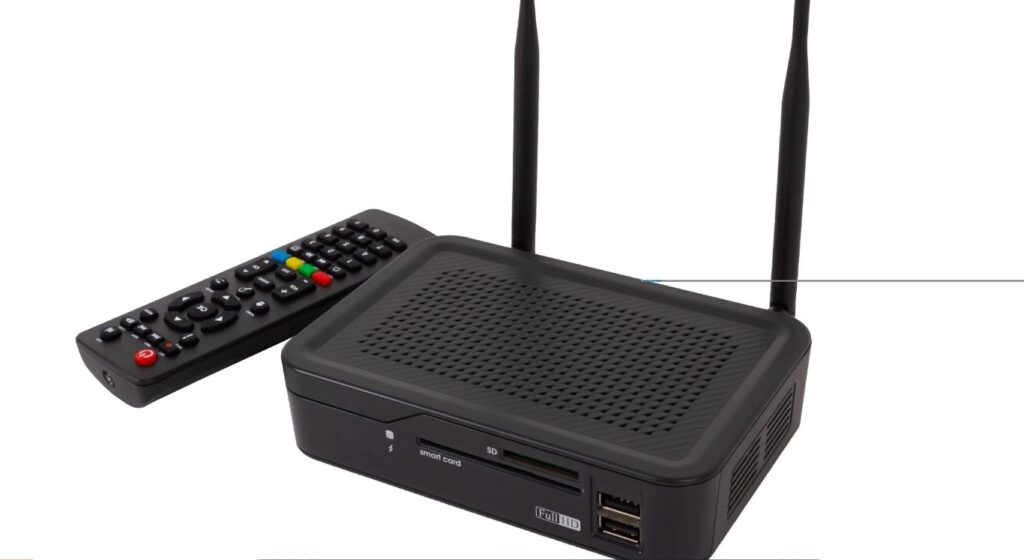IPTV Service
The television and media consumption environment has changed significantly in the era of digital innovation. More adaptable and dynamic options are progressively replacing traditional cable and satellite TV services; Internet Protocol Television (IPTV) is one such solution that is rapidly gaining favor. IPTV is a cutting-edge method of utilizing Internet Protocol (IP) networks to deliver television services, radically altering how we watch TV.
What are IPTV Services?

Internet Protocol Television Services, or IPTV Services for short, is a system that replaces traditional terrestrial, satellite signal, and cable television formats with the Internet Protocol suite over a packet-switched network like the Internet to deliver television services. With the use of this technology, consumers can stream on-demand movies, live TV channels, and other multimedia services via the Internet.
How Does IPTV Services Work?

At its core, IPTV operates by transmitting television content over the Internet protocol (IP) network infrastructure. The process involves encoding television signals into IP packets and then distributing them to users via broadband or internet connection. Users can access IPTV services through various devices such as smartphones, tablets, smart TVs, computers, and set-top boxes.
Architecture of IPTV Services Components
The architecture of IPTV typically involves the following components:
1. Content Delivery Network (CDN): The foundation of IPTV, CDN is in charge of effectively storing and distributing multimedia material to viewers. Through the reduction of buffering problems and latency, CDN guarantees high-quality streaming.
2. IPTV Middleware: Middleware is a conduit between the back-end server and the user interface. It oversees the distribution of content, user authentication, invoicing, and other interactive services.

3. Set-Top Box (STB): This device decodes IPTV signals and shows them on the TV. In addition, it offers extra features like interactive services, video-on-demand, and an electronic program guide (EPG).
4. User Interface: Using the user interface, viewers can pick content, browse channels, and use other IPTV service provider functions.
Benefits of IPTV Services
1. Broad Variety of Content: To accommodate a wide range of audience tastes, IPTV provides a large number of channels, including live TV broadcasts, on-demand films, series, sporting events, and foreign content.
2. Interactive Features: To improve the watching experience and convenience, IPTV services frequently offer interactive features including video-on-demand (VOD), time-shifted television, catch-up TV, and electronic program guides (EPGs).
3. Multi-Device Compatibility: Users can watch their preferred content whenever and wherever they choose with IPTV’s compatibility across a range of devices, including laptops, smartphones, tablets, smart TVs, and set-top boxes.

4. Cost-Effectiveness: IPTV frequently offers more economical subscription options than traditional cable or satellite TV services, doing away with the need for pricey hardware installations and lengthy contracts.
5. Superior Audiovisual Quality: IPTV offers high-definition (HD) and even ultra-high-definition (UHD) streaming, thanks to developments in internet technology and network architecture.
Challenges and considerations
While IPTV presents numerous advantages, it also faces certain challenges and considerations:
1. Internet Reliability: As IPTV depends on internet access, factors like network congestion, bandwidth restrictions, and internet outages may have an impact on service quality and cause buffering or streaming problems.
2. Content license: Obtaining license contracts for IPTV providers’ broadcasting content can be difficult and expensive, particularly when it comes to premium channels and exclusive content rights.
3. Regulatory Compliance: IPTV services have to abide by regionally specific copyright laws and local regulations that control the dissemination of television programs.
4. Security Concerns: To preserve the rights of content creators, broadcasters, and customers, IPTV systems must be protected against piracy, unauthorized access, and content theft.
Future of IPTV
Despite these obstacles, IPTV looks to have a bright future thanks to developing customer demands and technology breakthroughs. IPTV services, which offer cutting-edge features and customized watching experiences, are anticipated to grow increasingly more popular as internet infrastructure continues to advance.
In addition, the incorporation of cutting-edge technologies like virtual reality (VR), augmented reality (AR), and artificial intelligence (AI) may improve IPTV’s immersive qualities and expand its possibilities for content distribution and user engagement.
Conclusion
In conclusion, IPTV offers viewers everywhere unmatched flexibility, convenience, and choice, marking a paradigm shift in the way we consume television content. IPTV is positioned to reshape the broadcast industry and change entertainment in the future because of its extensive feature set.
FAQs
1. What equipment is required to use IPTV services?
A compatible device, such as a computer, smartphone, tablet, smart TV, or set-top box (STB) that is online, is usually required to access IPTV services. For access to their services, certain IPTV providers could demand the use of a certain set-top box or IPTV receiver.
2. Do IPTV services have any geographical limitations?
IPTV systems may be subject to geographical limitations based on content distribution rights and licensing agreements. Some IPTV stations and their content could be blocked or inaccessible in some areas because of licensing restrictions or legal obligations.
3. Can I access international channels and content on IPTV?
Indeed, various foreign channels and content that suit different linguistic and cultural tastes are frequently available on IPTV systems. With IPTV subscriptions, users can access foreign channels, films, TV shows, and programming from many nations and regions.
4. What is the cost of the IPTV service subscription?
The cost of an IPTV subscription varies based on features, number of channels, and length of membership. Many IPTV providers have subscription plans with basic, basic, and premium tiers of price, with options for monthly, quarterly, or annual payments.
5. Is it possible to capture and replay content on IPTV?
DVR (Digital Video Recorder) functionality is a feature that some IPTV services may offer, enabling consumers to record live TV shows and playback recorded content whenever convenient. The IPTV provider and subscription package may have an impact on the functionality and storage capacity of the DVR.
